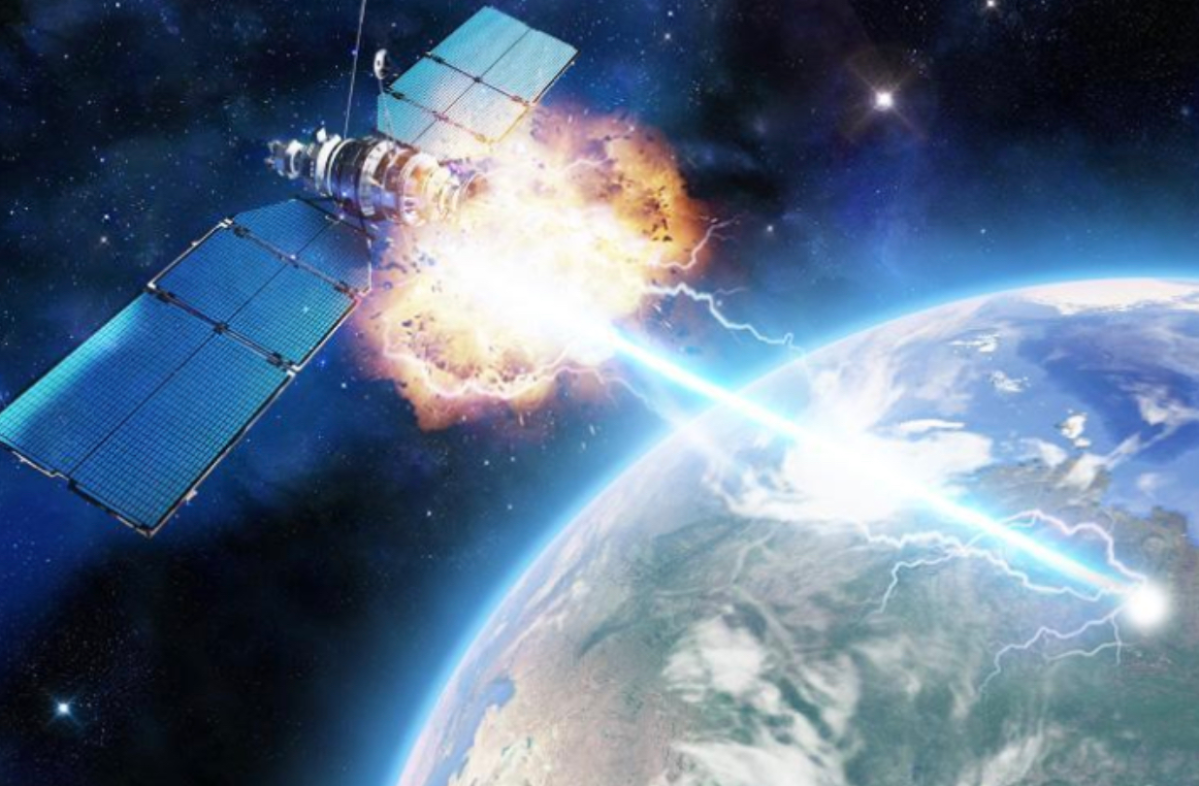In a world where the boundaries between terrestrial and extraterrestrial conflict blur, recent statements from Russia have stirred the pot of international tension, spotlighting SpaceX’s satellite operations as a nucleus of contention. The escalating narrative, interwoven with technological advancements and espionage, echoes the intensifying race among global superpowers for dominance not only on Earth but in the vast expanse of space.
A New Frontier for Geopolitical Tensions
The saga unfolded with Russia’s stark warning, categorizing SpaceX satellites as potential military targets. This announcement came on the heels of a revealing report by Reuters about SpaceX’s engagement in a classified contract with a US intelligence agency, aimed at deploying hundreds of spy satellites.
This development marks a pivotal moment in the strategic chess game of international relations, underscoring the increasing militarization of space and the pivotal role of commercial entities in national security agendas.

Foreign ministry spokeswoman Maria Zakharova’s comments to reporters, as quoted by Reuters, crystallized Russia’s stance, accusing the United States of co-opting commercial satellite operators for intelligence efforts.
“These systems become a legitimate target for retaliatory measures, including military ones,”
underscores the fraught landscape of modern warfare, where the delineation between civilian and military assets becomes increasingly nebulous.
The Deepening Nexus Between SpaceX and the US Military
At the heart of this narrative is SpaceX’s clandestine project under its military-focused business unit, Starshield. Spearheaded by Elon Musk, the company inked a staggering $1.8 billion contract with the National Reconnaissance Office, signifying the deepening entanglement between private sector innovation and military strategizing.
This collaboration highlights a fundamental shift towards leveraging commercial technology to fortify national defense capabilities, particularly in the realm of space-based reconnaissance.

The burgeoning partnership between SpaceX and the US military underscores a broader trend among world powers racing to develop and deploy space-based weapon systems. These advancements raise alarm bells over the potential for space to become a battleground, with implications that could resonate catastrophically across the globe.
German military officials have voiced concerns over nuclear-powered anti-satellite weapons, which could indiscriminately obliterate satellite infrastructure, underscoring the precarious balance of power in orbit.
The Strategic Implications of a SpaceX-Powered Spy Constellation
The envisioned SpaceX-powered spy constellation represents a quantum leap in surveillance capabilities, offering the US military unprecedented global oversight. The ability to capture continuous imagery of ground activities worldwide presents a strategic boon, epitomized by a source’s ominous assertion to Reuters:
Russia Warns of Potential Military Strike on SpaceX Satellites
Great. Just what we need. Putting Elon and his political views right in the middle of a war. $TSLAhttps://t.co/GtNBnBoOia via @Yahoo
— squawksquare (@squawksquare) March 21, 2024
“No one can hide.”
This capability could significantly tilt the scales in intelligence gathering, sharpening the US’s competitive edge in the global theater.
However, this deepening alliance between SpaceX and the US military has not been without its controversies. The use of Starlink satellite technology in Ukraine has spotlighted the ethical and strategic dilemmas at the intersection of commercial technology and military operations.
Accusations against Musk for allegedly compromising Ukrainian military efforts through Starlink internet outages have added a layer of complexity to the discourse on private sector involvement in conflict zones.

Conclusion: Navigating the Murky Waters of Space Militarization
As the narrative unfolds, the world watches with bated breath to see if Russia’s warnings will materialize into action or remain rhetorical saber-rattling. Nonetheless, the dialogue around SpaceX’s satellite constellation and its implications for global security dynamics is a poignant reminder of the new frontiers in warfare and espionage.
The celestial domain, once a peaceful frontier for exploration and discovery, now emerges as a contested arena, mirroring the geopolitical rivalries of Earth.
In this evolving landscape, the interplay between innovation, strategy, and international law will shape the future of conflict and cooperation in space. As nations navigate these uncharted territories, the imperative for dialogue, transparency, and regulation has never been more critical.
The stakes extend beyond the immediate interests of any single nation, implicating the collective destiny of humanity as we reach for the stars.










